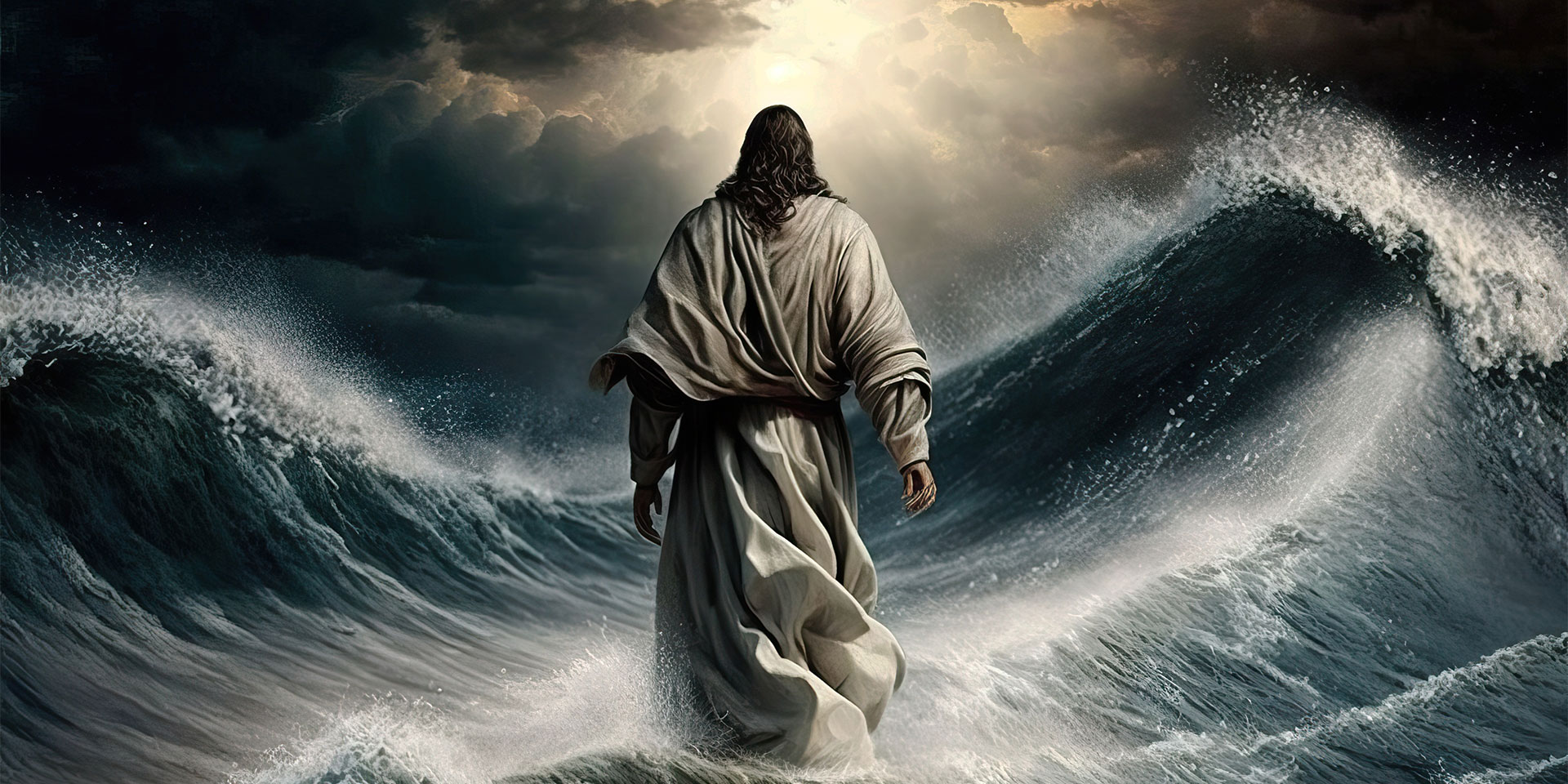“Even to your old age and gray hairs I am He, I am He who will sustain you. I have made you and I will carry you; I will sustain you and I will rescue you” (Isaiah 46:4).
An ordinary Monday day, an equally ordinary autumn, and a 40-minute drive for a general medical check-up. As he drove to the hospital, Pastor David Jeremiah felt like he was wasting precious time on routine tests that, he thought, could only end with the usual good news. After all, at 53, he was in good physical shape and there was no sign that his body had any intention of betraying him. The first test results came in well, and as he watched the approving smiles of the white-coated specialists, the man’s assumption that he would soon be able to return to his normal life, from which nothing was missing, was confirmed. Perhaps just a little more rest.
A few minutes later, the serenity of his thoughts was to be shattered by the doctor’s worried voice telling him that he could see a tumour in his spleen. An appointment for an X-ray and a trip to the radiology centre followed, with the hope that it would all end with a reassuring pat on the back. Then came the unexpected bump in the road: a short phone call telling him that he had a malignant growth in his lymphatic system. A long night followed, during which Pastor Jeremiah says he felt the deep bite of grief, disappointment and despair. Difficult days and even more difficult nights blurred into each other from the pain and confusion after the morphine injections. Then the good news and the relief of having survived the worst. And then, four years later, the news that put him back on the thin ice of uncertainty: his lymphoma had returned.
***
It was an evening like many others in the Sittser family, one that the head of the household had never counted how many times he would relive it, breathing in all the miracle it contained. Linda, Jerry’s wife and mother of four, had returned late from choir practice. The couple drank their hot chocolate and had a lively, even cheerful conversation that lasted well into the night. Noting how good life seemed to her at this stage of her life, Linda ended the conversation with a conclusion that would long linger in her husband’s mind: “I am overcome by the goodness of God.”[1]
The next day, Linda was dead. A tragic car accident claimed the lives of Christian teacher Jerry Sittser’s family. For a time, he saw life through the lens of shattered glass and piles of twisted iron. Jerry’s mother, his 4-year-old daughter Diana Jane, and Linda, the woman with whom he had shared his life for two decades, died shortly after the terrible impact. Suddenly life had lost its meaning, and the pain and emptiness were so overwhelming that Jerry felt it was a real punishment to be left alive.
“I did not simply feel raw pain; I was raw pain,”[2] Jerry says, admitting that he didn’t know how to live this new and frightening life, one in which the grief was too great to allow him the “luxury” of mourning his loved ones at the same time. And one in which he had to find a way through the darkness to bring up their three surviving children, traumatised by all that had happened, in some semblance of normality. This overwhelmingly good life had been brutally interrupted and he had plunged into a new, terrifyingly empty life as soon as he stepped out of the ambulance at the hospital.
Uncertainty can be one of the most difficult states to endure because our whole being craves predictability and certainty. But never are we more thirsty for the familiar part of life than when we are thrown into the eye of the storm that can wreak havoc on everything. Can we bear not knowing how a crisis in our lives will turn out, and still cling confidently to God? It’s a question we can avoid in times of relative calm, but one we will eventually be forced to answer—even if the uncertainty we face may never have the ominous outlines of serious illness or the loss that Sittser experienced.
Between choice and grace
In a book that describes the rocky road of loneliness, author Elisabeth Elliot tells the story of when her uncle, the editor of a Christian magazine, died and the task of editing the magazine fell to her father. While feeling overwhelmed by the responsibility, he received a letter from his father with a brief message of encouragement: “We are still under the same Auspices.”[3] It was this conviction that sustained Elisabeth Elliot through all the crises of her life, beginning with the loss of her first husband, Jim, a missionary among the Auca, after less than two and a half years of marriage. In fact, it was the same conviction that led her to stay close to the tribe for whom Jim had given his life, and to witness the conversion of the men who had killed her husband and fellow missionaries.
The fact that we are still under God’s protection even when we have reason to suspect that we have lost it is a paradox that Jerry Sittser talks about in his book, A Grace Disguised. Sittser does not set out to provide recipes for navigating through grief, nor does he believe that there is recovery, if by recovery we mean a return to the way we thought or acted before the loss. Rather, recovery is more about integrating the loss into our lives and experiencing growth around grief.
Each loss is unique and each is a test that we go through, says Sittser, emphasising the role of personal choices and the role of grace in the inevitable transformation that follows slipping into the abyss of grief. One of his choices was to face his suffering openly, to experience both the darkness and the light; to feel the pain, the sadness, and the despair, but not to let the loss have the last word; to choose not to make the experience of loss but the response to it the turning point of his life. Embracing his sorrow allowed him to forge a new life, different from the old one, but not necessarily worse. The very good parts of this new life include his relationship with his children, whom he has raised as a single parent, a greater appreciation of each moment, and a heightened sensitivity to the pain of others.
Another choice, by no means an easy one, was to reject the nagging feeling that everything was happening by chance. Thoughts returned hauntingly to the moment of the accident, weaving alternative scenarios: what if she had arrived later or earlier on that stretch of motorway, taken a different direction, or given up on going to the meeting she never made anyway after colliding with a drunk driver’s car? The accident will always remain a tragedy, and none of the good things that have come after will change that—such loss will always be part of the survivor’s identity, and its consequences will not be erased by the passage of time.
Although he is aware that he will experience new dimensions of loss along the way, Sittser has chosen to believe that “our own tragedies can be a very bad chapter in a very good book.”[4] In other words, beyond our experience there is a bigger picture in which God brings something good out of the painful and (seemingly) incoherent. And Sittser assures us that he’s already seeing glimpses of that good, and that as he experiences an unspeakable mixture of antagonistic states and emotions—feeling utterly crushed and yet more whole than before, his soul seeming never so dead and yet never so alive—he is witnessing God’s grace permeating every step of his experience.
God, a refuge in the storm
When his lymphoma came back, Pastor David Jeremiah says he experienced the whole situation as if the disease had made a mockery of all the gratitude he felt for his recovery. There are no easy ways to weather the storm, but Jeremiah outlines some responses that have worked in the midst of adversity.
God’s promises remain a very valuable resource for sustaining hope. When feelings of helplessness overtake us, we can lean on the promises as safe and secure, even when everything around us is reeling—God is our refuge and the One who knows all about our journey (Psalm 142:3, 5); He cares for our every need (Philippians 4:19); He is willing to give us strength (Luke 10:19), unearthly peace (Philippians 4:7) and to fight for us (Exodus 14:14); He supports us in every season of life and crowns His gifts with His salvation (Isaiah 46:3-4).
There is a power in God’s promises that is released when we believe that God will do what He says.
Prayer of praise is one of the most effective ways to break free from pressure.
Worship is the first and last refuge in the storm, as King David, long pursued by the wrath of Saul, discovered: “As for me, I call to God, and the Lord saves me… He hears my voice” (Psalm 55:16-17). Immersed in the study of the biblical Psalms, by which he is comforted in times of painful uncertainty, Jeremiah observes that praising God is one of the most effective ways of escaping pressure. It may be hard for us to see the point of such an exercise when all we want to do is somehow amplify the resonance of our requests, but the pastor assures us that praise unleashes the power of the miraculous. First of all, it is the miracle that is wrought in us when we praise God, whatever the circumstances—we can expect a renewal of the mind, a broadening of perspective, a change of attitude towards God, and more spiritual maturity.
Redirecting our thoughts is a key tool for building resilience in the midst of the storm. Our minds are both a weapon and a shield in life’s difficult moments, writes Jeremiah, who emphasises that it’s important to provide the right fuel for our thoughts, which tend to focus on the negative event. Instead of slipping into the spiral of brooding, we can choose to let our minds survey the record of His miracles in the past. Yesterday’s God is today’s God, and today’s trouble is our opportunity to focus more on Him than on the situation.
Whenever we find ourselves in situations we’ve never faced before, we need to remember past divine interventions, writes Pastor Hensley Moorooven, emphasising the importance of reading the Bible with a fresh perspective. We know, for example, that God cared for Israel for 40 years, but it’s easy to be superficial about information we’ve encountered frequently. When we do a little maths, we realise what it meant to provide for the 2.6 million or so people who came out of Egypt.
Whenever we find ourselves in situations we have never faced before, we need to remember God’s miracles of the past.
To survive for a single day in the desert, a person needs about 11.35 litres (3 gallons) of water, which means that the whole group needed about 29.5 million litres of water per day. Today, the amount of water needed in a single day could be carried by 673 tankers, but God gave them all this water from a rock, for 40 years. Continuing the series of calculations, Moorooven shows that it would have taken 1,600 tonnes of food for a single meal (and two trains each one kilometre long to carry it), and the One who led them through a pillar of cloud and of fire provided even more than they needed by opening the windows of heaven and feeding them with manna.
What inspires our courage to step into the unknown is the fact that the One we know walks with us, even smoothing every rough path with His feet. “The Lord himself goes before you and will be with you; he will never leave you nor forsake you. Do not be afraid; do not be discouraged” (Deuteronomy 31:8). Our journey is paved with this assurance that we will not be abandoned or forgotten, even when the threads of life become tangled until, like David in other times, it seems there is no escape. As Charles Spurgeon said, “God is near, and therefore hope is near.”
Carmen Lăiu is editor of Signs of the Times Romania and ST Network.




















